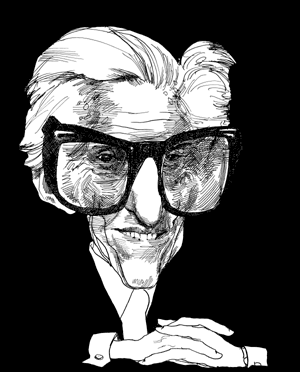1.
Lew Wasserman, longtime head of MCA-Universal, a man thought by many to have the sharpest and best-disciplined business mind ever to exercise executive power at a major American movie studio, died just a year ago, of a stroke, after having been a sometimes distant but always respected presence in Hollywood since the early Forties. His family, faithful to his orders, buried him quietly on the very day of his death, but eventually, with some reluctance, allowed a memorial service to be held; the reason for their reluctance was the shabby treatment they felt he had received, in the last decade of his life, from three successive owners of the great company he had labored so carefully to build. The owners were in turn Japanese (Matsushita), Canadian (Seagram), and French (Vivendi). We’ll get to the shabby treatment in a bit.
The memorial service, largely organized by the media baron Barry Diller, was held in the Universal Amphitheater. Picasso reportedly said that no one had looked as hard at Matisse as he had: similarly, I doubt that anyone has made a closer study of Lew Wasserman’s method and practice than Barry Diller, although the agent Michael Ovitz probably runs him a close second. MCA was principally a talent agency for forty years. For Diller, Lew Wasserman was the gold standard, and he said as much when he addressed the crowd. So many of the great and famous were crammed into the amphitheater that day that, had an earthquake swallowed the place, it would have been necessary to more or less start over with Hollywood.
Connie Bruck has written a fascinating, if, of necessity, somewhat constrained book about this shock-and-awe-inspiring man. It is neither a full biography nor yet a narrowly defined history of Wasserman’s business career. Lew Wasserman was, for example, married to Edie Wasserman for more than sixty-five years, but the reader will have to skip and dip to locate even five pages about what would normally be called Lew Wasserman’s “personal life.”
This Issue
July 3, 2003
-
*
Decades later he was not so prescient about cable.
↩






